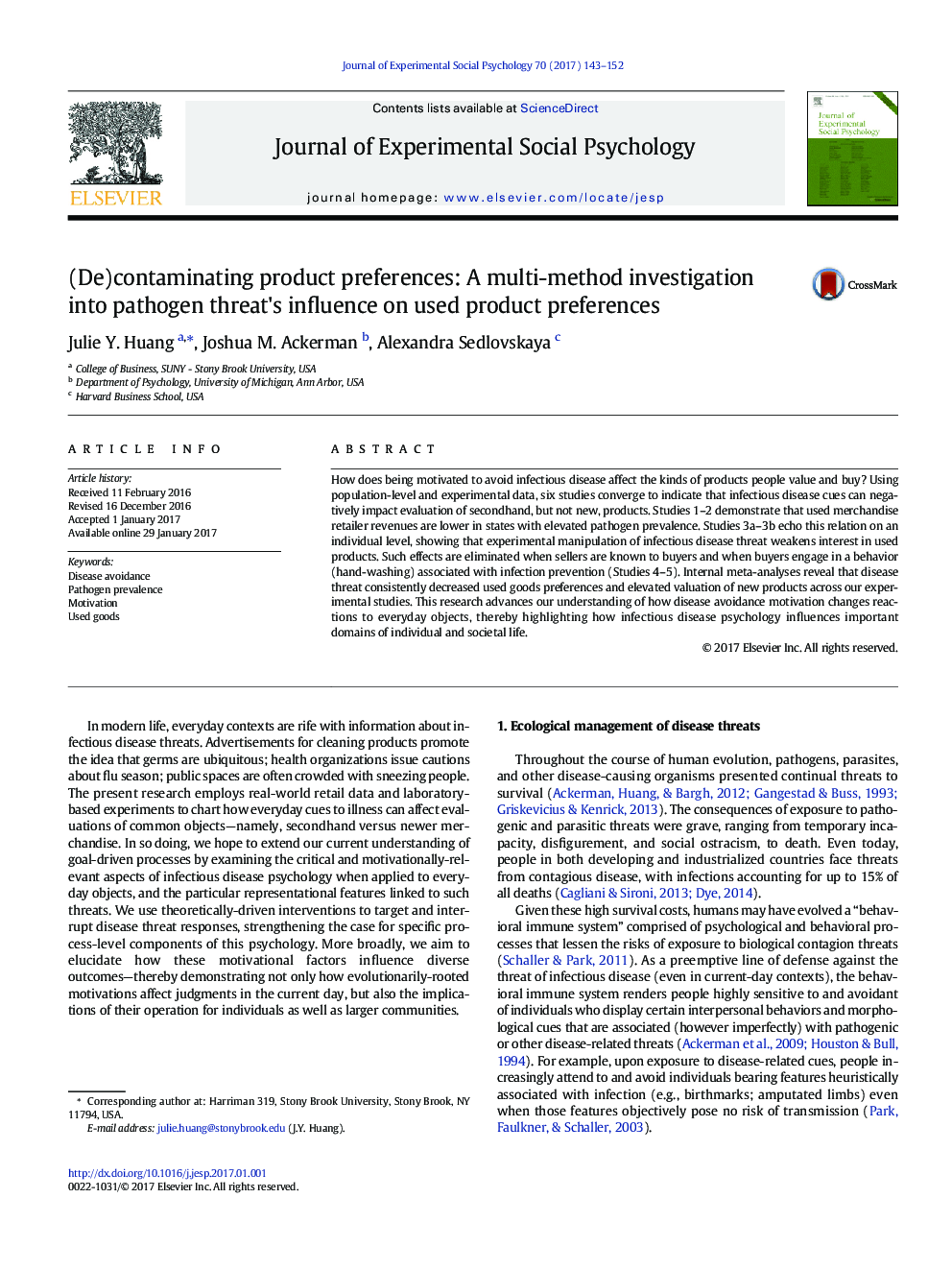| Article ID | Journal | Published Year | Pages | File Type |
|---|---|---|---|---|
| 5045639 | Journal of Experimental Social Psychology | 2017 | 10 Pages |
How does being motivated to avoid infectious disease affect the kinds of products people value and buy? Using population-level and experimental data, six studies converge to indicate that infectious disease cues can negatively impact evaluation of secondhand, but not new, products. Studies 1-2 demonstrate that used merchandise retailer revenues are lower in states with elevated pathogen prevalence. Studies 3a-3b echo this relation on an individual level, showing that experimental manipulation of infectious disease threat weakens interest in used products. Such effects are eliminated when sellers are known to buyers and when buyers engage in a behavior (hand-washing) associated with infection prevention (Studies 4-5). Internal meta-analyses reveal that disease threat consistently decreased used goods preferences and elevated valuation of new products across our experimental studies. This research advances our understanding of how disease avoidance motivation changes reactions to everyday objects, thereby highlighting how infectious disease psychology influences important domains of individual and societal life.
